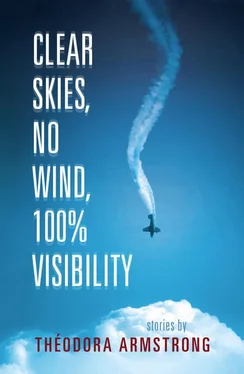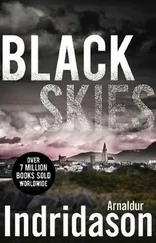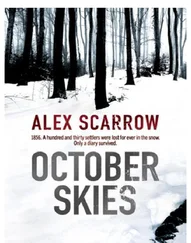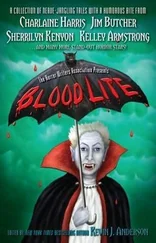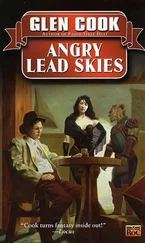And it’s at this exact moment the call comes in from the water bomber.
“Golf Foxtrot Victor Bravo. Mayday, mayday, mayday.”
I’m aware of the pause — a mere second and a half — even as I’m responding to the mayday. The lapse is a weakness I didn’t realize I had in me. Static fills my head as my heart starts to pump faster.
“Golf Foxtrot Victor Bravo.” I say, “Pacific Radio received mayday, state the nature of your emergency.”
John slides the binder with our emergency protocol across the desk toward me and I begin flipping through the pages. Suddenly I feel wide awake, my heart a stopwatch tick-tocking and the air rushing through my chest. Voice procedure shrinks the Floor to an airless box: language reduced until there is no room for interpretation. There are very specific things I need to say and do written in clear detail on the pages of this binder. All I need to do is follow them in a straight line, top of the page to bottom.
“We’re losing fuel fast.” The pilot’s words escape between short gasps of breath. “We need to land now.”
“Can you give me your position?” Beside me John is mobilizing everyone: ambulance, RCMP, JRCC. I watch him move across the room to let the supervisor know I have an emergency.
I’ve spoken to this pilot once already today, earlier in my shift. The recollection comes back all at once: The pilot reporting an engine indication, a small leak in the gas tank he attributed to a possible rupture after picking up his load. He told me he planned to drop the water before heading back to the airport. I wished him safe travels, stepped away from procedure and let my voice drop like a newscaster from the fifties. It was a small indulgence. A lapse caused by boredom.
“We are… We are currently fifteen kilometres west of Fintry Park.” The pilot’s voice has changed since the first call. When I spoke to him earlier he sounded confident. Now his voice is whittled to a thin edge. “We need crash and fire rescue.”
“Roger.” My finger scans lines in the binder. “What are your intentions?” I know the question is meant to shift the pilot’s state of mind. It’s one of the most important lines we learn during voice procedure training. It’s like hitting a reset button — it reminds the pilot he’s the only one in control of the aircraft.
“My intentions?” I can hear the strain in his voice as he tries to handle the plane.
“Crash and fire are on their way.”
“There’s nothing but trees out here. I need a beach, a highway, something.” His voice splits, comes unravelled like the end of a frayed rope. “We’re dropping. Jesus Christ.”
At the back of my mind, beyond the static, the hawk is still soaring, nothing but wings and air — the quietest descent. The radio goes dark.
“Golf Foxtrot Victor Bravo, this is Pacific Radio. Do you copy?”
A heavy blanket of electricity is filling the room, storm clouds piling. All the slugs are coming to life — animating — no longer slumped over their consoles staring into middle space. John is watching me carefully, but I won’t look over at him.
“Golf Foxtrot Victor Bravo, this is Pacific Radio. Do you copy?”
There are several more moments of silence before the high pitched tone of the emergency transmitter comes whining through the 121.5.
“Shit.” I slam my hand flat on the desk. Seconds later the radio fills with other pilots in the area calling to report the crash. The language is like a force field helping me keep my distance from all the voices. There’s panic in all of them, but most keep it controlled well enough that I can understand what they’re saying, well enough that I can call them professionals.
“Golf Foxtrot Zulu Whiskey. Mayday, mayday, mayday.”
“…into the side of the mountain.”
“…huge fireball west of Fintry Provincial Park.”
When the calls stop I get up and walk around the room, snapping the blinds one by one, yanking the thin little cords and sending them up so fast they crash and rattle into the tall windows. “I want to be able to see what’s going on out there,” I shout at no one in particular, to the whole room, launching my arm in a wide arc to account for every single one of them. “What the hell do we have windows for?” No one in particular looks in my direction. “And if it bothers you, John, wear some fucking sunglasses.” I slam the door and head for the vending machine glow at the end of the hallway. John follows me and at first I think he’s going to start complaining about the blinds again, but his approach is too slow, too careful. When he gets to me he stretches and his back cracks. “You good?” he says, without looking over, drumming a finger down the machine choices.
“Fine, yeah,” I say, fishing in my pockets for change.
“First one, eh?”
I look over at John, but he’s tapping his foot and staring at the vending machine, nodding his head as though it’s emitting some kind of musical beat.
“Well,” John says, considering the coins in his hand. “You’re part of the club now.”
“What club?”
A few months ago in a conference hall for a seminar on flow and capacity management, I sat in silence — the only person under fifty in the room — and sipped my acrid coffee, letting it burn my lips while I listened to all those grey-hairs add up their years to retirement. When I was asked to introduce myself, I stood and said, “My name is Wes Harris and I have thirty-three years until retirement.” The room thundered with laughter, all these rip-roaring red faces going berserk at the thought of thirty-three more years. They laughed so hard they cried, grown men wiping tears from their jiggling cheeks. I meant it as a joke, but for some reason I couldn’t laugh along with them. I sat back down in my seat. Sipped my coffee. They all looked the same to me, inside and out. It was the pallor of their skin, that waxy sheen and puffiness around the eyes after years on the job — the signs of a dull heart. I check my reflection in the screen for those signs. Pull down my bottom eyelids. So far I see nothing of the sort.
“Some guys go their entire careers without a call like that. Now look at you.” John slaps my shoulder. “Not even a year in and you’ve had your first.”
“Guess so.” I go to put a coin in, but John gets there first. “Is that something to be proud of?” I ask him.
“Had my first, oh, almost ten years ago now.” He takes his time choosing his pop. “My only, actually. Pleasure pilot with his wife. Oil pressure problem. Found the plane half-submerged, tail up near the beach. Just a few feet of water, but they both drowned. Mountain’d be quicker.”
“Sure would.” When I reach out to put my coins in I notice my hand is shaking.
“Why’s that grizzly sleeping on a cloud, right?” John chuckles, cracking open the can and taking a long sip. “Heard that one?”
“Nope.” I shove money into the machine.
“When’d they raise the prices on this thing, anyway?” He takes another sip and gives the machine a jab. “Another quarter and still the piss-poor selection.”
I punch random buttons. A can drops into the slot and I grab it and leave John standing at the machine talking to himself. When Angie was two months pregnant I flew to the other side of the country to train for this job, a year in a program with a 3% success rate — flashcards, mnemonic devices, simulators — studying day and night in a dorm room in Cornwall that smelled of feet (could’ve been my own feet.) But I ate it without complaints. Forget the fact that I could knock off a paper on the Islamic Golden Age over an all-nighter while half in the bag. I may have had a future on one of those leafy campuses, but instead I became a human mainframe for weather and word patterns. Alpha, Bravo, Charlie, Delta, Echo, Foxtrot, Golf, Hotel, India . That’s the versatility of the human brain.
Читать дальше
